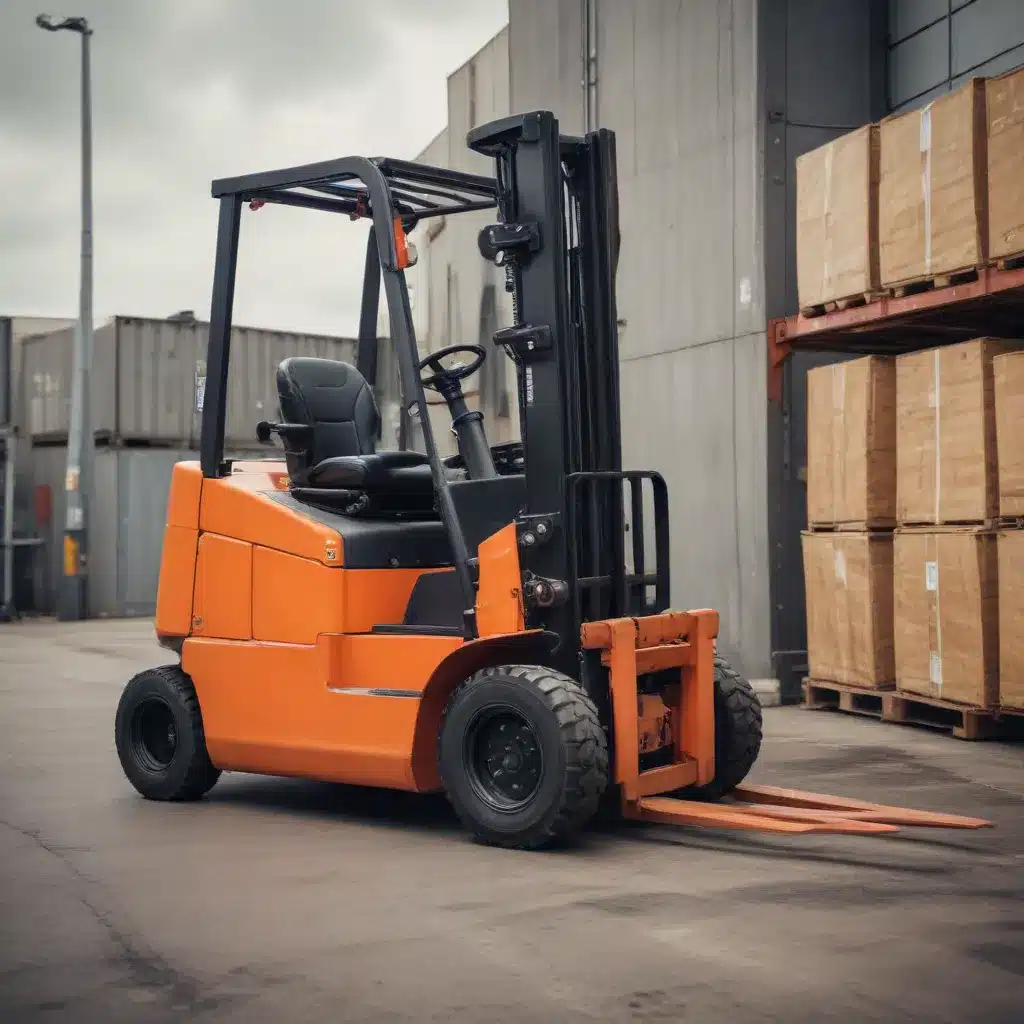
The Evolving Regulatory Landscape for Forklift Safety
Safety is paramount in the construction industry, and staying up-to-date with the latest regulations is not merely a legal requirement but a critical aspect of ensuring the well-being of every worker on site. The Occupational Safety and Health Administration (OSHA) has recently implemented changes to the regulations governing the operation of forklifts and cranes in the construction industry, reflecting the industry’s evolving challenges and risks.
These new standards emphasize the operator’s qualifications, mandating that all forklift operators be certified and undergo thorough training programs. Additionally, operators must be evaluated every three years to ensure their skills and knowledge remain current. The modifications for cranes focus on equipment inspection, with updated rules that mandate periodic and regular crane inspections to confirm operational safety.
These regulatory changes underscore OSHA’s commitment to enhancing workplace safety. Adherence to these new standards is not just a legal obligation but a crucial step in fostering a culture of safety and compliance within the construction industry. Businesses must adapt swiftly and effectively to these changes, as ignorance can lead to legal repercussions and compromise the well-being of employees, ultimately impacting the organization’s reputation.
The Burden of Certification: Employer Responsibilities
OSHA’s stance on forklift operator training and certification is clear: the employer is solely responsible for ensuring that their employees are adequately trained, evaluated, and ultimately certified. The agency does not engage in the certification, accreditation, or approval of trainers or their training programs, whether online or offline.
OSHA regulations split forklift operator training into three integral components: formal instruction, practical training, and performance evaluation. While the foundational “classroom” element of forklift training can be conducted online, OSHA mandates that the practical, hands-on training and direct evaluation of an operator’s performance in their actual work environment be carried out in person by a qualified individual.
This comprehensive approach ensures that operators not only grasp the theoretical concepts but also develop the necessary skills and demonstrate their competency in a real-world setting. Employers are responsible for maintaining records of this training and certification, as well as ensuring that any new hires or existing operators undergo the required evaluations every three years.
Embracing Hybrid Training Models
Given the absence of an official forklift operator training course and specific OSHA certification, employers must take a proactive approach to ensure their workforce is properly trained and certified. One effective solution is to adopt a hybrid training model that combines online instruction with in-person practical training and evaluation.
Online training platforms, such as those provided by Forklift Reviews, can deliver the foundational theoretical knowledge efficiently and affordably. This allows employers to cover the classroom-based portion of the training at the convenience of their employees, laying a solid foundation for the practical hands-on component.
The in-person practical training and performance evaluation can then be carried out by a qualified individual within the employer’s organization or through a trusted training provider. This hybrid approach ensures that all OSHA requirements are met, while also optimizing the training process and minimizing disruptions to daily operations.
Maintaining a Culture of Safety and Compliance
Ensuring forklift operator certification is not just a legal requirement; it’s a crucial investment in the well-being of your workforce and the long-term success of your organization. By fostering a culture of safety and compliance, you not only protect your employees from harm but also contribute to a more efficient and productive work environment.
Proactively training and certifying your forklift operators demonstrates your commitment to ethical business practices and industry best practices. It can also enhance your organization’s reputation, making you an attractive partner for clients and collaborators who prioritize safety and compliance.
The recent changes in OSHA regulations present an opportunity to review and optimize your forklift operator training and certification processes. By partnering with industry experts, such as Forklift Reviews, you can navigate this evolving landscape with confidence, ensuring your operations remain compliant and your workforce is equipped with the necessary skills to work safely and efficiently.
Embracing the Future of Forklift Operator Training
As technology continues to shape the material handling industry, the future of forklift operator training is marked by innovative trends that enhance both operator expertise and workplace safety. Forklift simulation training, for instance, allows operators to practice maneuvers and simulate real-world scenarios in a risk-free, virtual environment, preparing them for the challenges they’ll face on the job.
Data analytics are also making their way into forklift certification programs, enabling employers to track operator performance and customize training plans to address individual strengths and weaknesses. Additionally, as automation and advanced equipment become more prevalent, forklift certification is evolving to include training on these cutting-edge technologies, ensuring operators are equipped to navigate the industry’s technological advancements.
Furthermore, the notion of certification as a one-time event is shifting towards continuous learning and recertification. As regulations, safety standards, and best practices continue to evolve, regular refresher training and evaluations will become increasingly crucial to maintain operator proficiency and keep pace with the industry’s changing landscape.
Conclusion: Investing in Forklift Operator Certification for a Safer Future
Forklift operator certification is not just a box to be checked; it’s a strategic investment in the safety, productivity, and long-term success of your organization. By embracing the changing regulatory landscape and adopting comprehensive training programs, you can empower your workforce, enhance your operational efficiency, and demonstrate your commitment to ethical business practices.
The team at Forklift Reviews stands ready to support you in this journey, providing expert guidance, practical insights, and tailored solutions to ensure your forklift operations remain compliant and your employees are equipped with the skills to work safely and effectively. Reach out to us today to learn more about how we can help you navigate the evolving world of forklift operator certification and build a culture of safety that sets your organization apart.

